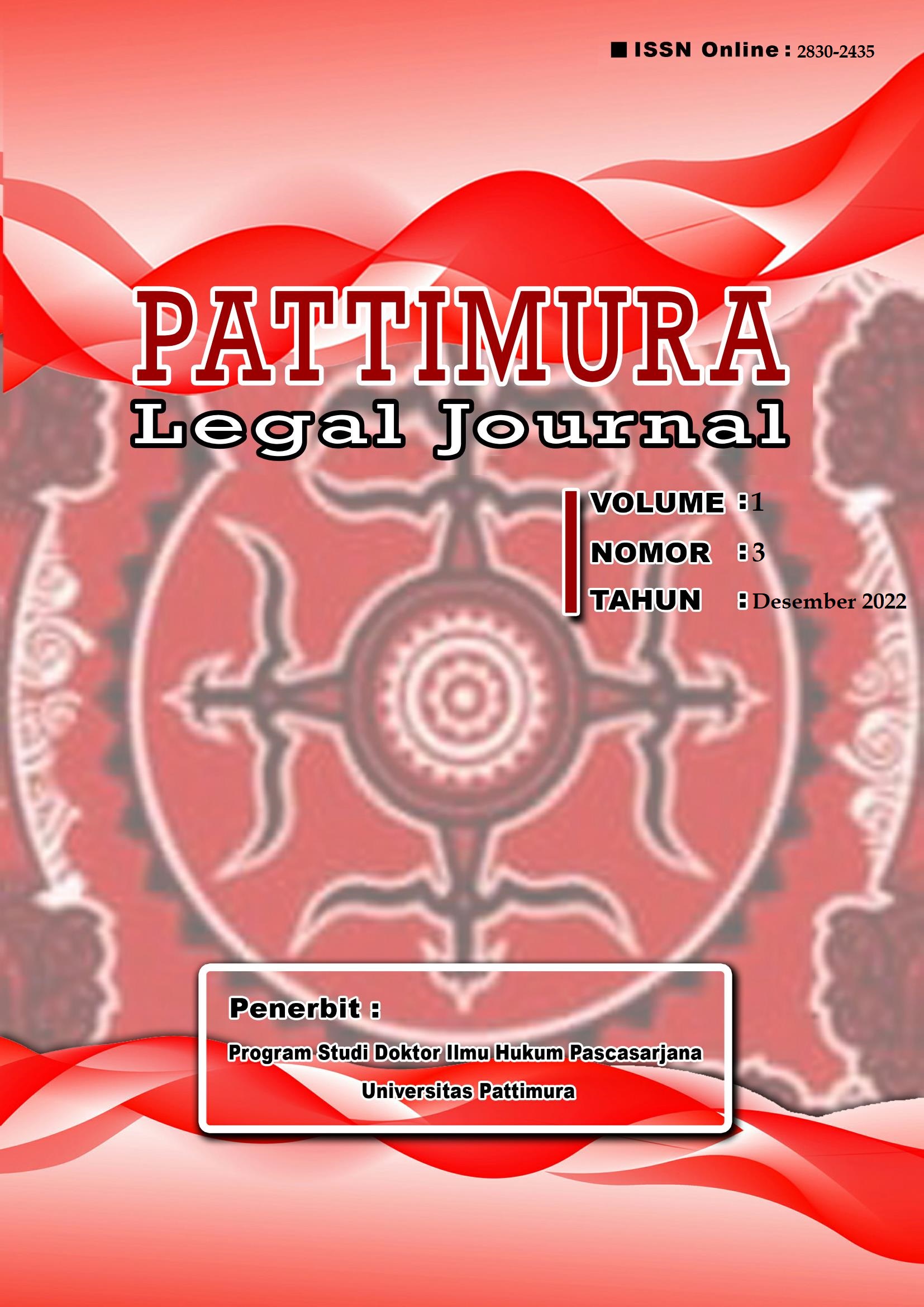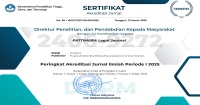Prinsip Miranda Rule Sebagai Hak Asasi Tersangka Dalam Sistem Peradilan Pidana Indonesia
Abstract
Introduction: Often in the law enforcement process there is a form of crime, neglect of obligations, human rights violations related to the civil rights of citizens in the criminal justice system and abuse of power committed by apparat. In our criminal justice system, the rights of suspects who are the basis of human rights attached to them are often overlooked, which is detrimental to suspects.
Purposes of the Research: This research aims to find out how the Miranda Rule principle guarantees the human rights of suspects in the Indonesian criminal justice system.
Methods of the Research: The methods used in this research are normative research methods, using a conceptual approach and a statute approach.
Results Originality of the Research: the results showed that the Miranda Rule/Miranda Principle, in the form of Miranda Rights has provided guarantees for the rights of suspects. Namely, the right to obtain/contact legal counsel/advocate, and if unable to, then the right to be provided with legal counsel/advocates, the right to obtain legal assistance has been absorbed into articles 54, 55, and 114 of the Criminal Procedure Code of Indonesia, while if he is incapacitated, then the suspect has the right to be provided with legal counsel by the official concerned or through an investigator, as stipulated in article 56 paragraph 1 of the Criminal Procedure Code of Indonesia. As for the Miranda Warning (Right To Remain Silent), it is not expressly regulated, but implicitly it can be interpreted as its application in articles 52, 117 and 166 of the Criminal Procedure Code of Indonesia.
Downloads
References
Buku
Donnelly, Jack. Universal Human Rights in Theory and Practice. United States of America: Cornell University Press, 2003.
Effendi, Mahsyur. Tempat Hak-Hak Asasi Manusia Dalam Hukum Internasional/Nasional. Bandung: Alumni, 1980.
Hamzah, Andi. Hukum Acara Pidana Indonesia. Jakarta: Sinar Grafika, 2005.
———. Terminologi Hukum Pidana. Jakarta: Sinar Grafika, 2008.
Kasim, Ifdhal, and Eddie Riyadi Terre. Pencarian Keadilan Di Masa Transisi. Jakarta: ELSAM, 2003.
Lubis, Sofyan. Pelanggaran Miranda Rule Dalam Praktek Peradilan Pidana. Yogyakarta: Liberty, 2003.
———. Prinsip “Miranda Rule”: Hak Tersangka Sebelum Pemeriksaan. Yogyakarta: Pustaka Yustisia, 2010.
Maidin, Gultom. Perlindungan Hukum Terhadap Anak Dalam Sistem Peradilan Pidana Anak Di Indonesia. Bandung: Refika Aditama, 2010.
Marzuki, Peter Mahmud. Penelitian Hukum,. Jakarta: Kencana, 2016.
Mulyadi, Lilik. Hukum Acara Pidana Normatif, Teoritis, Praktik, Dan Permasalahannya. Jakarta: Alumni, 2007.
Samudera, Teguh. Analisis Dan Evaluasi Hukum Tentang Hak-Hak Tersangka/Terdakwa Dalam KUHAP. Jakarta: Badan Pembinaan Hukum Nasional Departemen Kehakiman dan HAM RI, 2002.
Online/World Wide Web, Disertasi/Tesis/Skripsi, Dan Lain-Lain
Ali, Achmad. “Sosiologi Hukum Tinjauan Singkat Sosiologi Hukum Terhadap Konsep Hak Asasi Manusia.” Kumpulan Kuliah: Universitas Hasanuddin, 1997.
Sunarisasi, Sri. “Pelanggaran HAM Yang Terjadi Pada Pasca Jajak Pendapat Di Timor Timur (Peradilan HAM Ad Hoc Timor Timur).” Tesis: Universitas Diponegoro, 2008.
United Nations. “Abc Teaching Human Rights Practical Activities for Primary and Secondary Schools.” United Nations Publication. 2004.
Copyright (c) 2022 Muammar Muammar, Wahdaniah Baharuddin (Author)

This work is licensed under a Creative Commons Attribution-NonCommercial 4.0 International License.
Authors who publish their manuscripts in this Journal agree to the following conditions:
- The copyright in each article belongs to the author, as well as the right to patent.
- Authors are able to enter into separate, additional contractual arrangements for the non-exclusive distribution of the journal's published version of the work (e.g., post it to an institutional repository or publish it in a book), with an acknowledgment of its initial publication in this journal.
- Authors are permitted and encouraged to post their work online (e.g., in institutional repositories or on their website) prior to and during the submission process, as it can lead to productive exchanges, as well as earlier and greater citation of published work.
- Authors have the right to self-archiving of the article (Author Self-Archiving Policy)






















